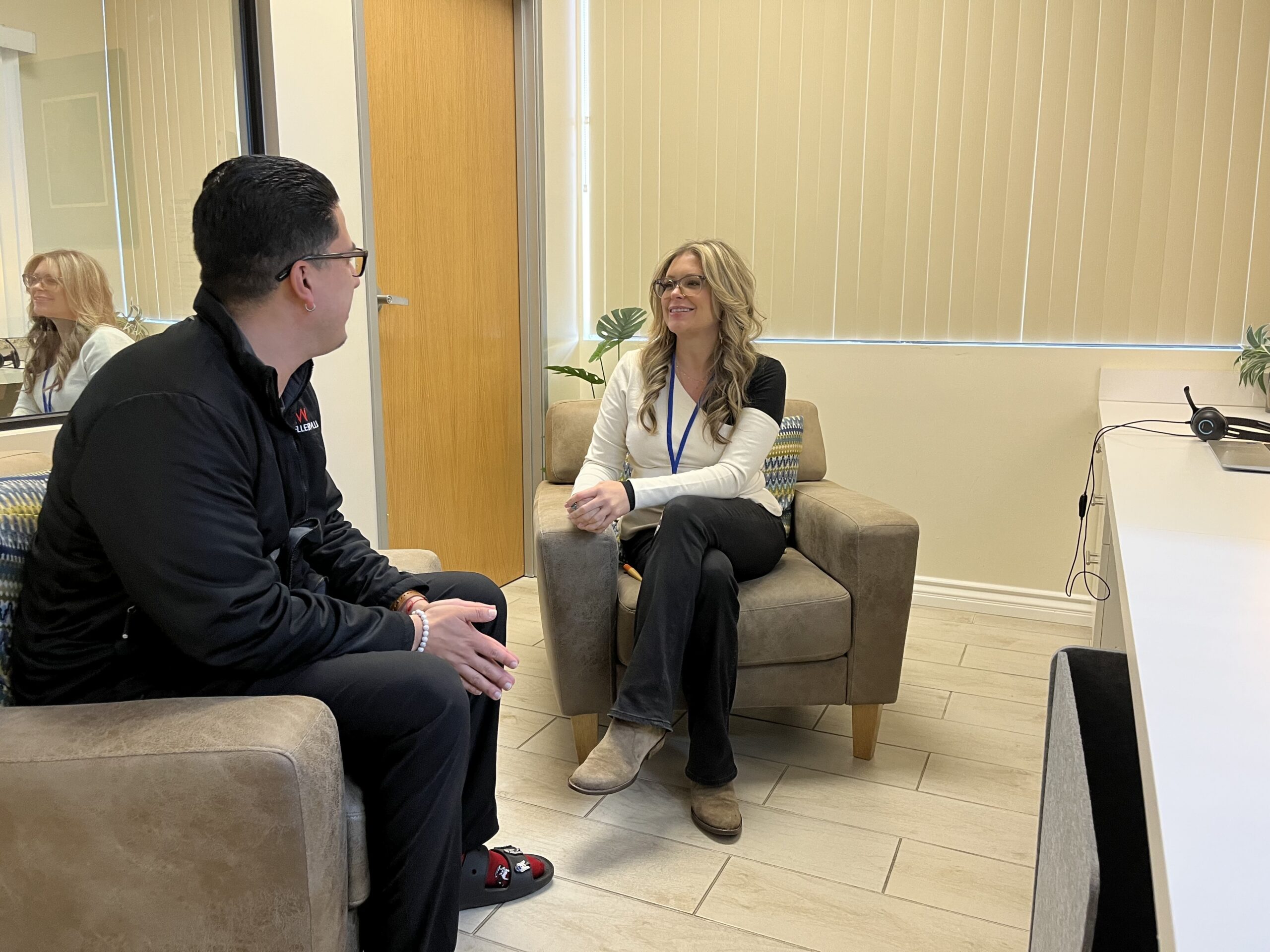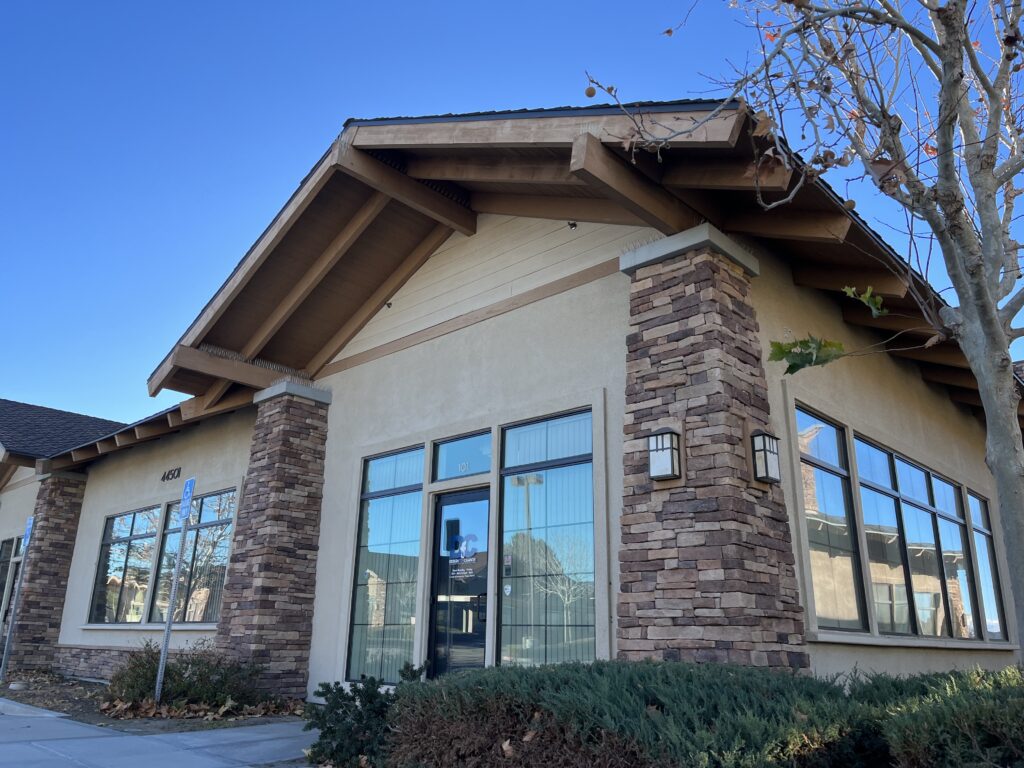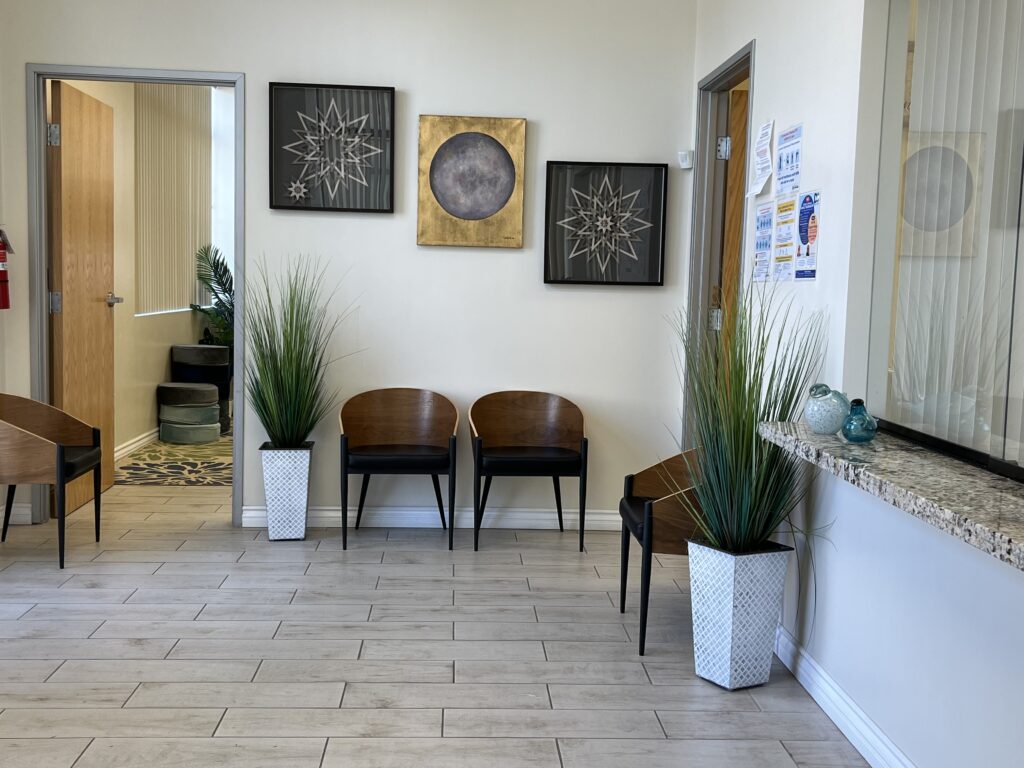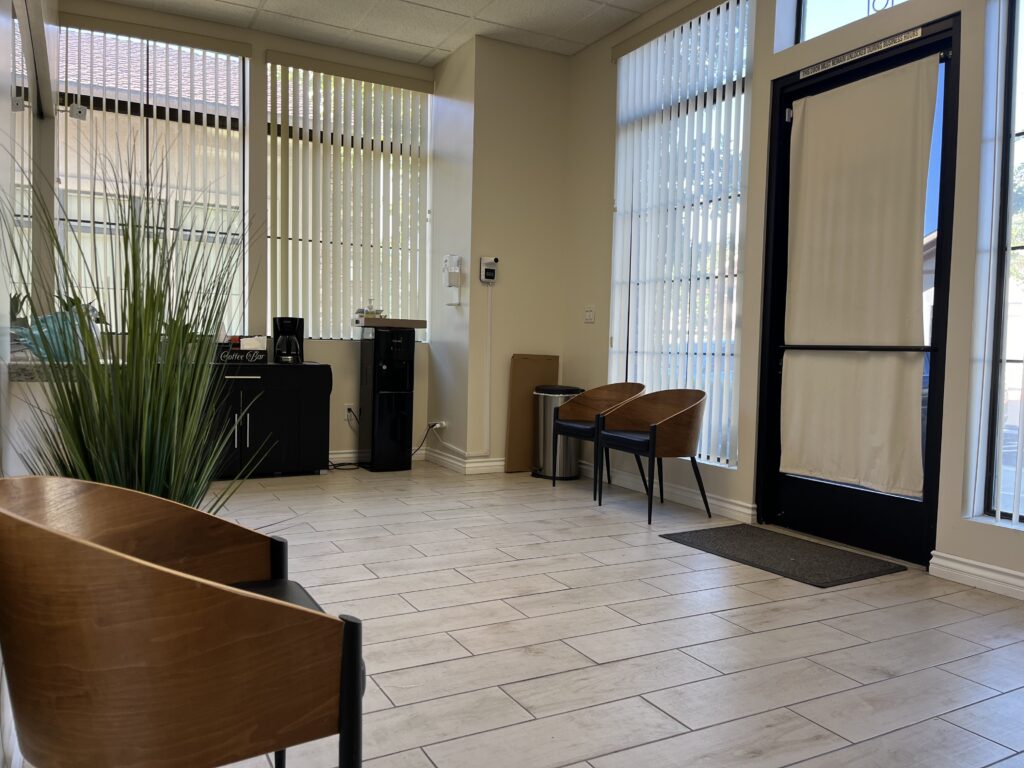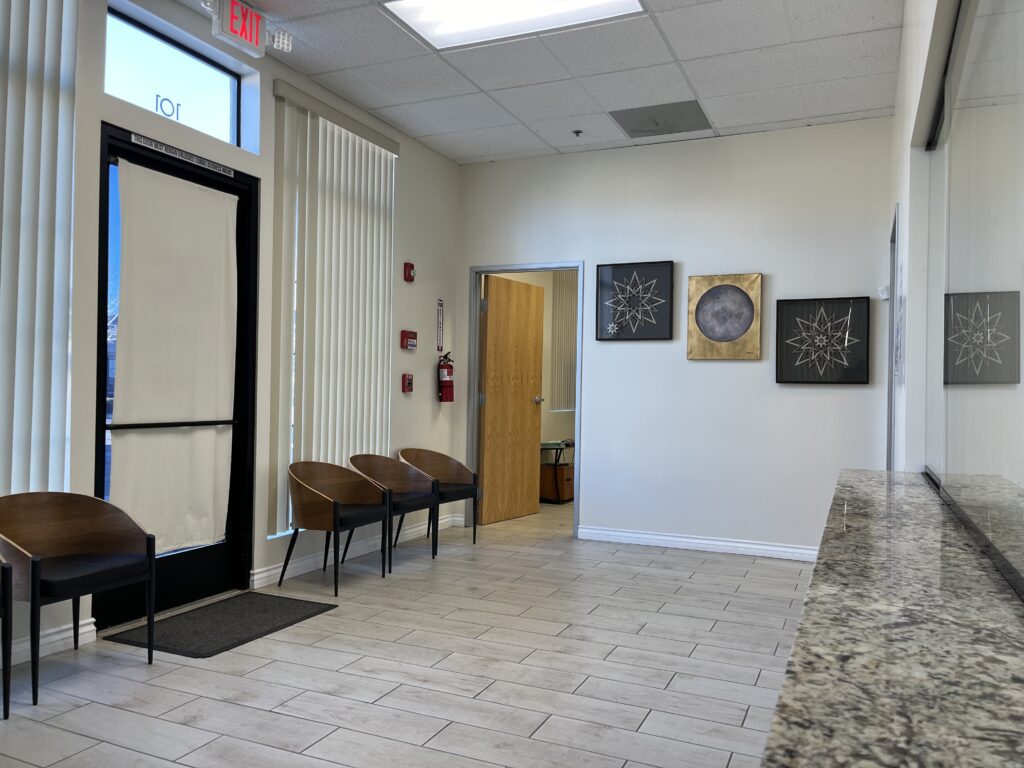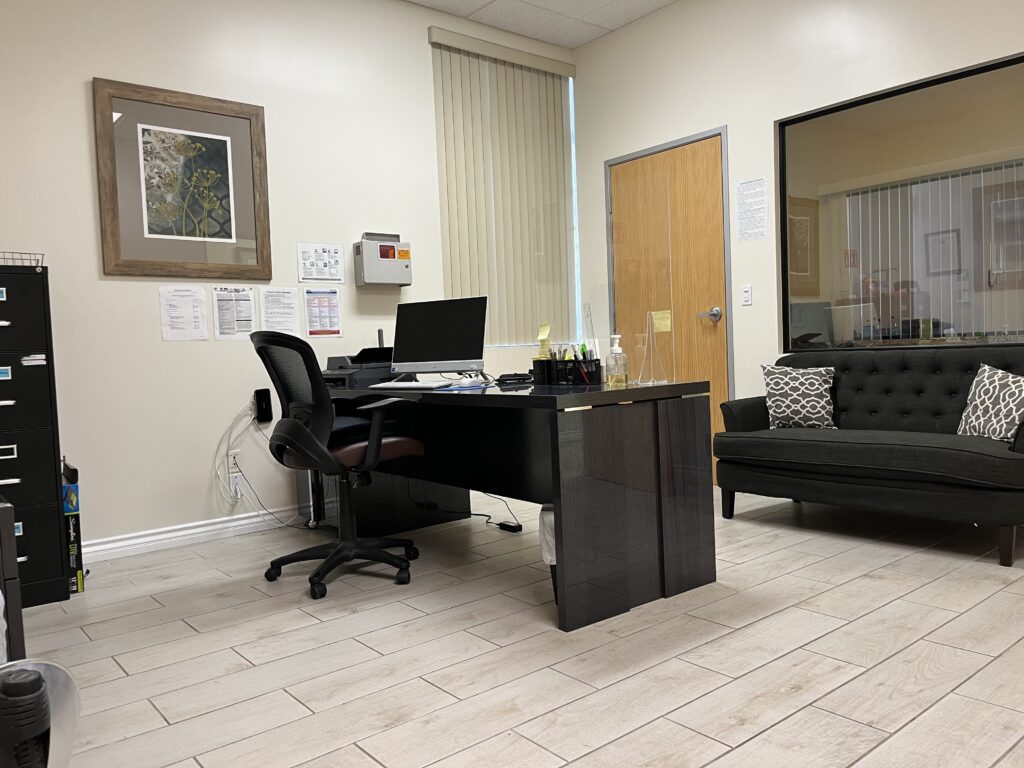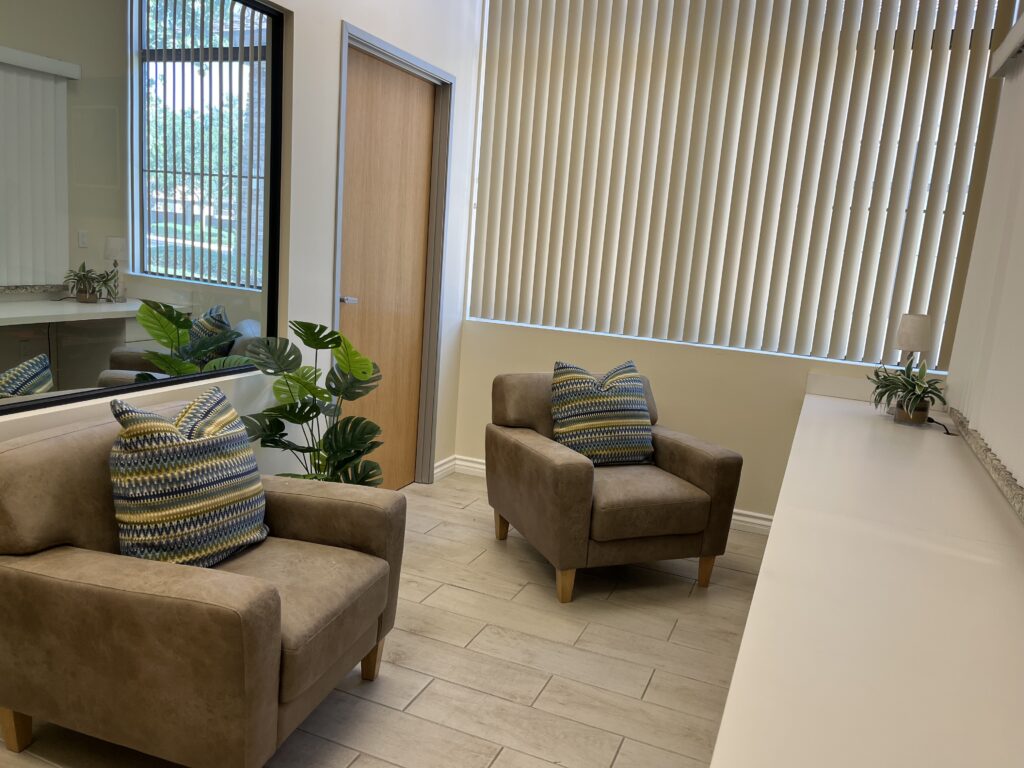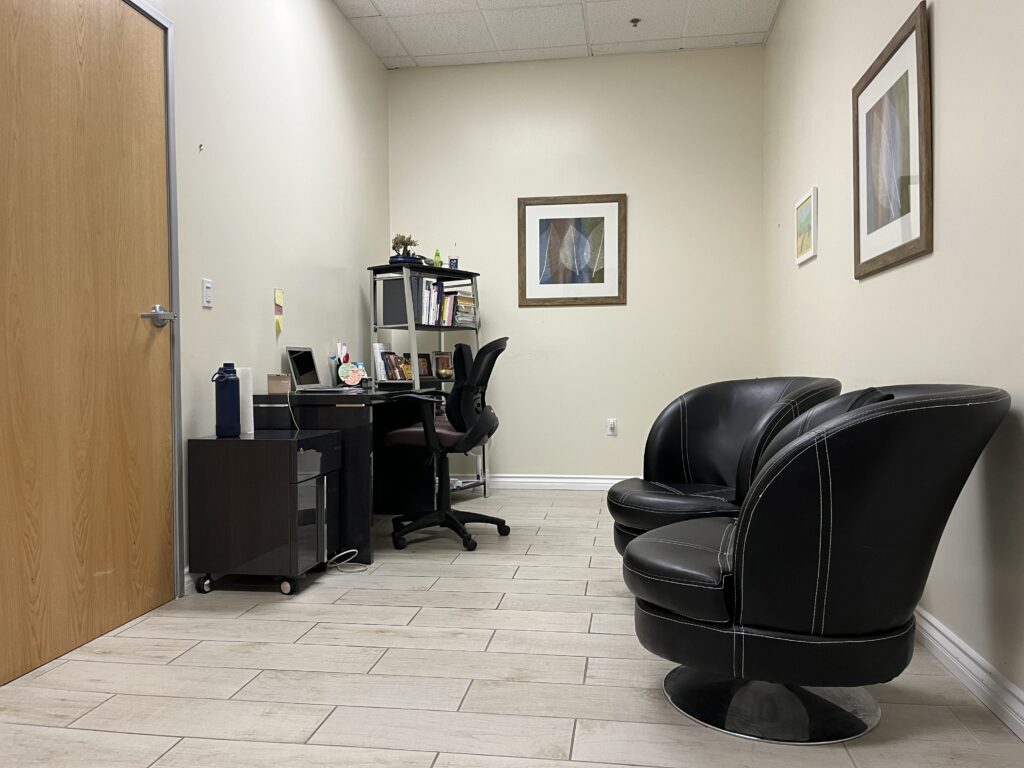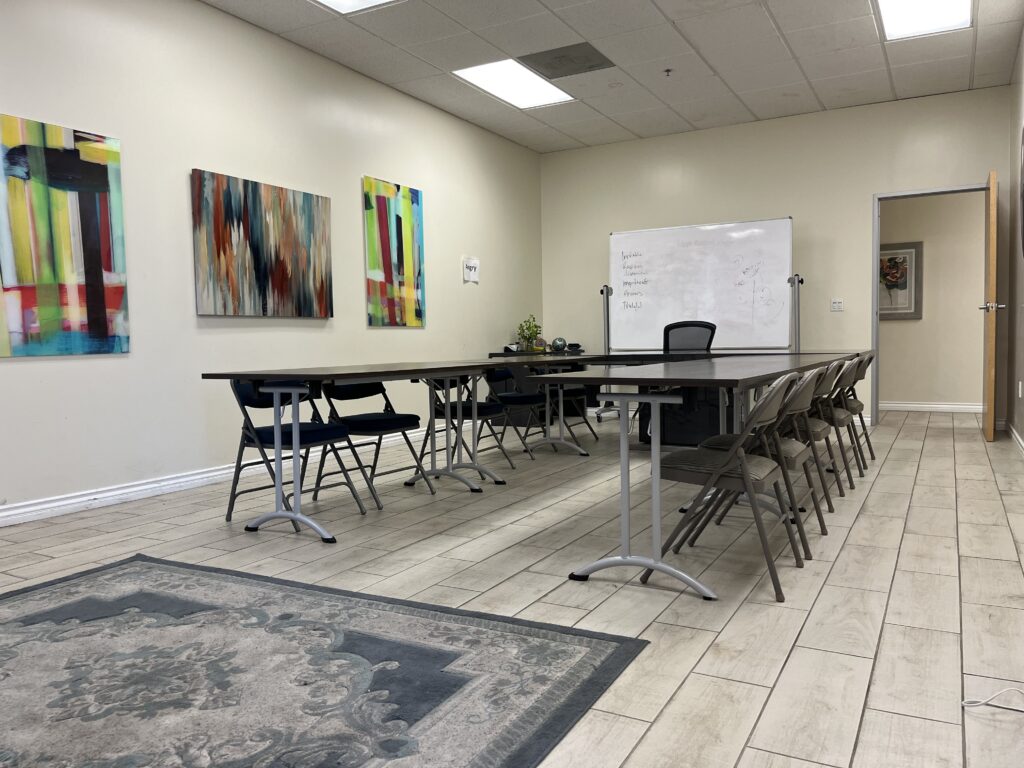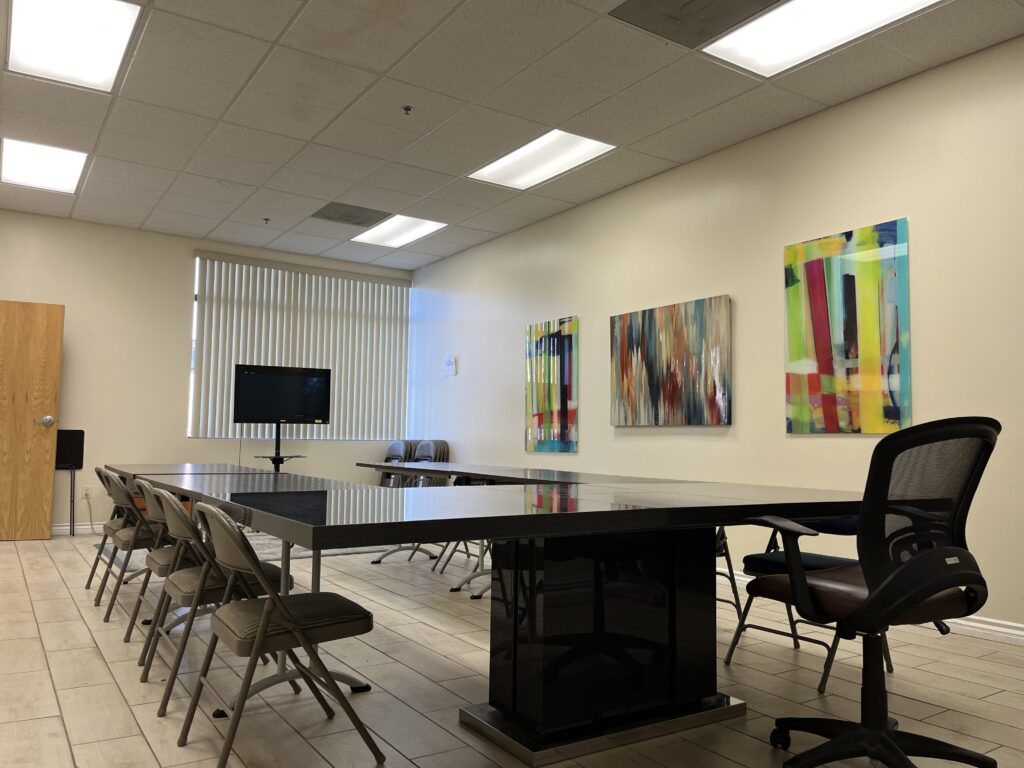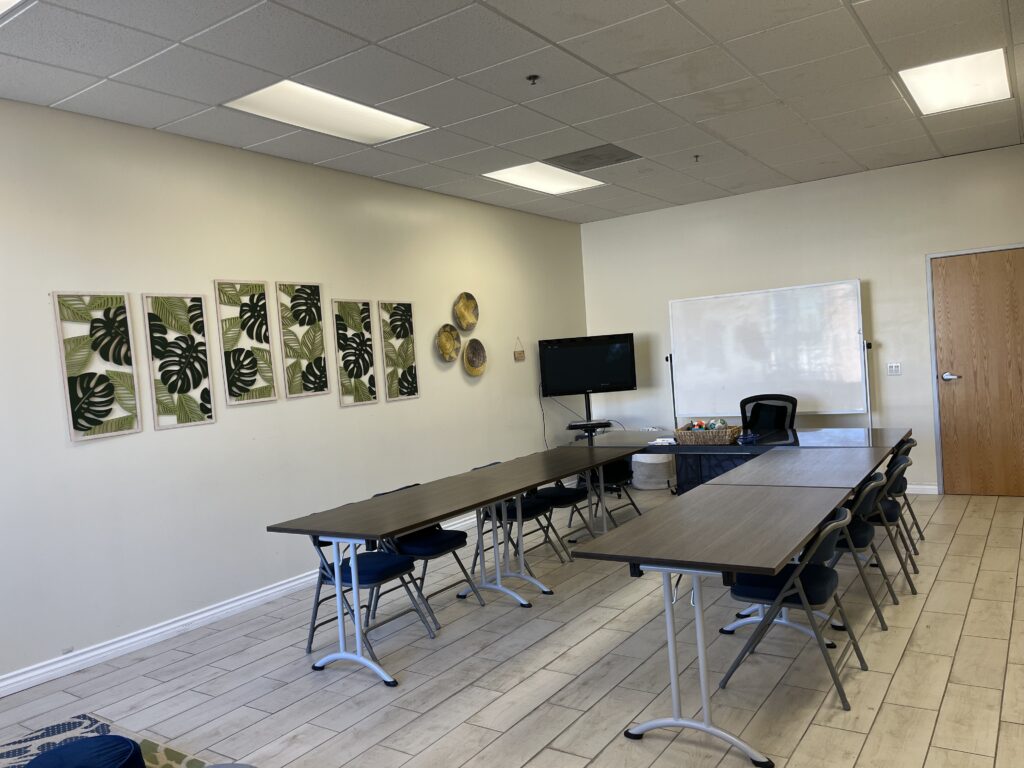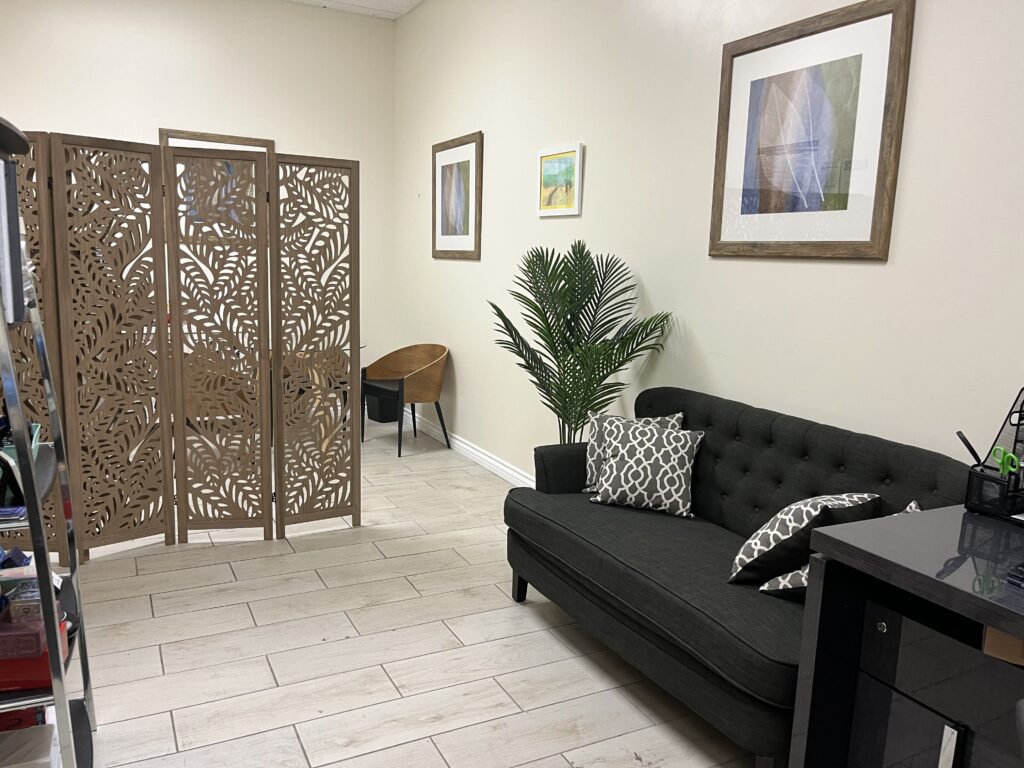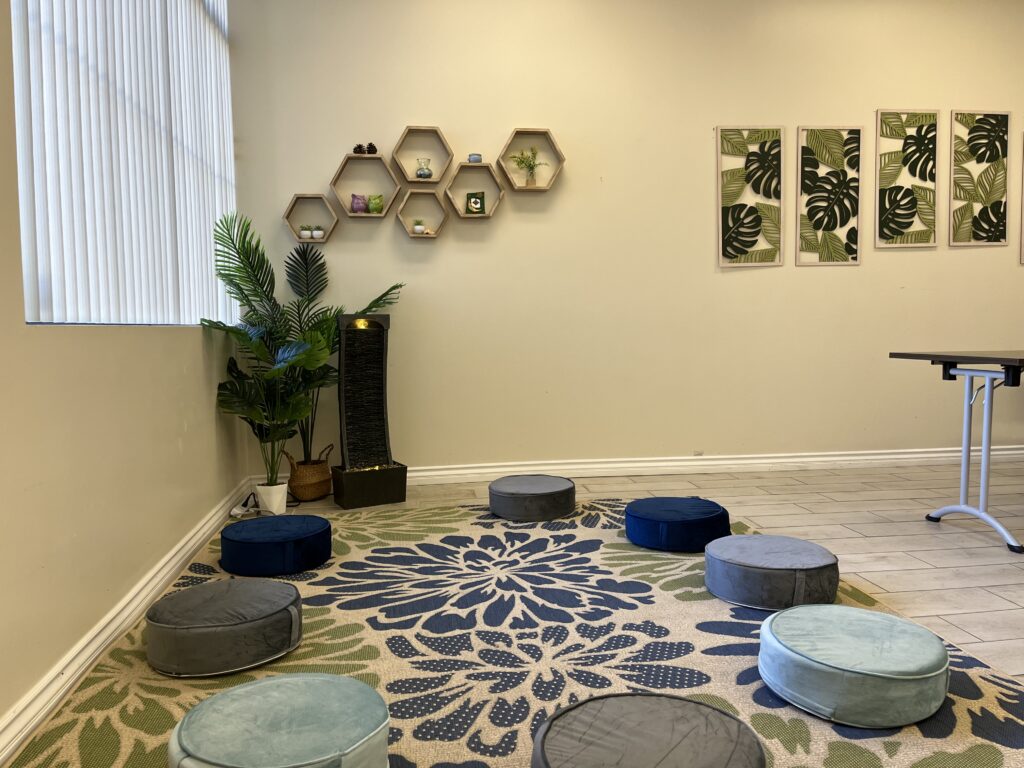Outpatient Drug Rehab Program
At Design for Change, our outpatient treatment involves numerous protocols, including cognitive therapy, marital therapy, vocational therapy, peer group support, counseling services, peer discussions, and professional treatment.
Our outpatient treatment program is individualized to suit every client’s needs. The patients receive treatment while commuting from their homes.
Outpatient Rehab Program for Addiction Treatment
We handle such mild substance misuse or inappropriate use comprehensively in our outpatient rehab facility. Design for Change outpatient facility located in Lancaster, California, is the best for individuals willing to terminate their dependence on drugs through a flexible schedule compatible with their daily routine.
If you join our outpatient rehabilitation programs, you will have a chance to continue living your life naturally and come for the sessions as per the agreed schedule. Despite our outpatient program’s flexibility, our clients still get optimum care instrumental for their complete recovery.
In most circumstances, individuals in need of drug rehabilitation programs don’t get the best care because of the much time it would consume out of school, work, or family. However, our outpatient program’s flexibility allows adults and adolescents to go through the treatment without compromising their responsibilities.
Get Directions to Design for Change Outpatient Program
Drug and Alcohol Detoxification
It is often the first step in your recovery journey. During detoxification, our specialists will assist you in soothing mental and physical distress. Individuals addicted to alcohol, benzodiazepines, painkillers, or opioids need medical detox to manage withdrawal symptoms. It is necessary because the symptoms associated with alcohol or benzodiazepines could be harmful. Medical detox levels vary.
Depending on our specialists’ instructions and the severity of your addiction, the physician may opt for an outpatient detox program.
Types of Therapies in Our Outpatient Rehab Program
At Design for Change, we incorporate therapeutic interventions to help patients understand the origin of high-risk behavior. We help them learn how to avoid relapse by developing some essential skills. Even though detoxification is critical in managing withdrawal symptoms, it does not solve drug misuse or inappropriate use. Hence, the need for the following therapies is effective in managing co-occurring psychiatric challenges such as obsessive-compulsive disorder, depression, and anxiety.
- Commitment and acceptance therapy: This type of treatment helps clients accept the numerous challenges present in life. Well-being is achievable through overcoming negative feelings and perceptions. It focuses on three areas: taking action, picking a valued direction, accepting reactions, and staying present. ACT focuses on the client’s habits and character traits.
- Cognitive-behavioral therapies: Through this program, our specialized therapists help the patients manage problems by changing their thoughts and behaviors. CBT relies on the interconnection among thoughts, actions, physical sensations, and feelings. We assist our clients in overcoming overwhelming issues. CBT focuses on managing current problems. It involves practical ways to enhance an individual’s mental state daily.
Other therapies we provide at Design for Change include contingency management, interpersonal therapy, and dialectical behavior therapy.
Group Therapy
Groups are core parts of numerous drug addiction treatments. For individuals in need of treatment for mild addiction, group therapy is the best choice. Members of group therapy may meet monthly, weekly, or even daily. Individuals in the recovery phase will get the opportunity to share out their experiences with drug addiction.
Our specialized counselors will gather individuals facing similar challenges. The participants can discuss common issues affecting the groups in a controlled and secure therapeutic setting. The group therapies’ primary objective is to ensure that the patients deeply understand their addiction and continue to provide and receive support from other groups.
Individual Health Assessment
At Design for Change, our specialist incorporates chemical dependency assessment in determining the most appropriate addiction treatment for our clients. The counselors can determine the dependency degree on a drug. This multi-step program is critical in assisting our specialists in choosing the right action to manage a disorder based on their behavior.
Mental Health Treatment
Initially, the idea of participating in group therapies appears intimidating to most clients. However, we have effective group therapies consisting of about 15 individuals headed by specialized therapists. The patients recognize that they aren’t the only people experiencing the addiction challenge. Besides, getting to hear how others overcame the addiction challenge is a great encouragement. Examples of such groups are Alcoholics Anonymous and Narcotics Anonymous.
Drug addiction may propel individuals to be anti-social. However, through group therapies, the clients will learn to re-engage with others.
One-on-One Counseling
At our outpatient facility, counseling, and individual health assessment solve immediate issues concerning a patient’s drug addiction and their role in attaining and maintaining abstinence. During the outpatient therapy sessions, our counselors might:
- Inquire about the use of substances.
- Ask what the client is feeling.
- Observe how the patients spend their time after the last sessions.
- Inquire about the patient’s reaction to the recent group meetings.
Our counselors will help the clients review their reactions to recent group activities, treatment programs, and coping mechanisms. Besides, the counselors will help you handle worries concerning the process of recovery and sensitive matters that may be hard to share in the groups.
Fitness and Wellness Activities
At Design for Change, wellness is part of outpatient addiction treatment. Even though procedures, skills, and psychiatric therapies are the foundation of recovery, fitness, and wellness are critical contributors to a stable body and mental health. It promotes confidence and an optimistic outlook assisting recovering addicts in maintaining their general well-being and abstinence.
Hence, we cannot underrate the importance of exercise in managing disorders associated with substance misuse or inappropriate use—the wellness program suits every client’s needs, based on the challenges and history of addiction.
Family Program
Therapy and counseling on substance misuse or inappropriate use often involve programs for the members of the family too. Through our treatments, your family will learn the factors leading to the disorder, prevent relapse, and support loved ones in the recovery process appropriately. Family programs are more so beneficial to families affected negatively by the addiction of their loved ones. Family members will get to learn how to communicate and live effectively. The program aims at reducing the risk factors of addiction, such as low productivity, conflict, and employment. The program may consist of the kids, parents, and spouse.
Nutritional Assessment and Adjustments
Our professional physicians will diagnose the patient’s nutritional deficiencies and design a wellness treatment plan. Some nutritional requirements and diets that arise following prolonged addiction include:
- Increasing the intake of minerals and vitamins.
- Getting enough complex carbohydrates, protein, and fiber.
- Maintaining a diet low in fats.
- Taking meals as per a given schedule.
Our nutritionist will incorporate the meal plan into the client’s treatment schedule with specific nutritional requirements throughout the treatment.
Experiential Workshop
These include hands-on actions that assist our clients in their recovery process and coping with past trauma. At times, we understand that our clients may feel uncomfortable sharing with our psychologists in the typical counseling atmosphere. However, through our experiential workshops, we make the atmosphere conducive for our clients.
Mostly in the music art studio to enable them to feel free. As part of the recovery, we mentor our clients to gain practical course works to achieve personal value and stability. The educational courses we offer will assist the patient in having the discipline and self-control necessary for living a drug-free life.
Outpatient Rehab Program at Design for Change Recovery
In case you need assistance in determining the best addiction treatment residential program for you or your loved ones, do not hesitate. Reach out to our support group at Design for Change at 855-997-1372.
